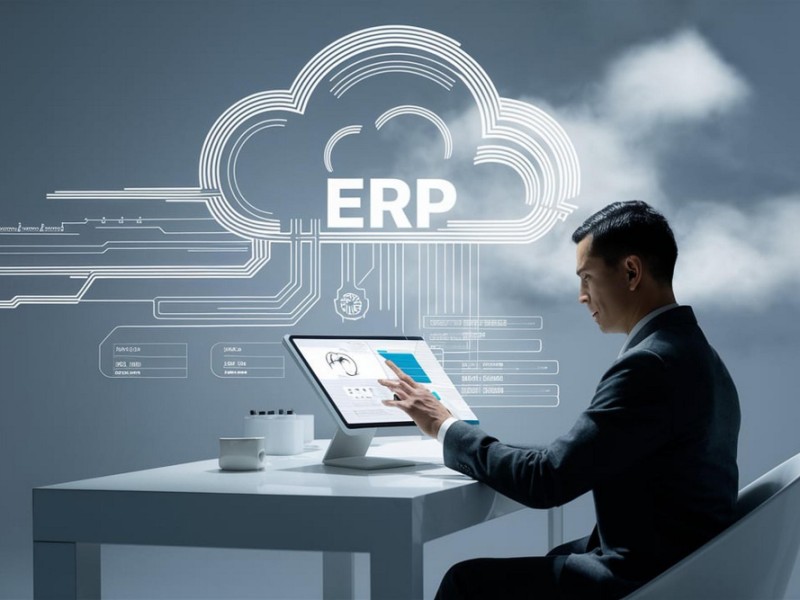Blog - Channel Partner
Why Migrating from Microsoft On-Premise Business Central, NAV, GP, & SL to Business Central Online Makes Sense

In the rapidly evolving world of technology, businesses that rely on legacy on-premise ERP systems like Microsoft Business Central, NAV, GP, and SL often face significant challenges that hinder their productivity and growth. While these systems were once state-of-the-art, they now struggle to meet the demands of modern business environments, including remote work, AI-powered tools, and data-driven decision-making. Here we explore why companies should transition to Business Central Online—Microsoft’s cloud-based ERP designed to future-proof businesses.
Challenges with Legacy On-Premise ERP Systems
Organizations still using NAV, GP, or SL encounter several roadblocks, including, but not limited to:
High Infrastructure and Maintenance Costs: Maintaining on-premise systems involve purchasing servers, managing hardware, and dealing with recurring IT maintenance. Each upgrade requires manual intervention, leading to added downtime and expenses.
Limited Scalability: Growing businesses need robust systems that can scale with them, but older ERP solutions are limited in their ability to support expansion—whether it is adding new locations, products, or services.
Increased Cybersecurity Risks: Legacy software is more vulnerable to security threats due to outdated protection and the lack of regular updates. Azure has multi-layered security and without this, legacy systems are at a high risk when it comes to sensitive business data.
Disconnected Tools and Processes: Fragmented operations, especially with disconnected finance, sales, and operations departments, significantly impact the efficiency and effectiveness of business operations. On-Premise systems such as NAV, GP, and SL require custom integrations to work with Microsoft Three Six Five applications, which can often be very costly and prone to errors.
The Case for Moving to Business Central Online
Migrating to Business Central Online offers businesses a cloud-first ERP solution designed to overcome the limitations of legacy systems. Here are the top reasons why the switch makes sense:
1. Always Up to Date with Automated Upgrades: With Business Central Online, businesses no longer need to worry about scheduling and paying for software upgrades – this becomes coherent. The cloud-based ERP provides continuous updates, ensuring that users always have access to the latest features and performance improvements.
2. AI-Powered Insights for Smarter Decision-Making: Built-in AI tools enhance forecasting, automate reporting, and offer actionable insights. This allows businesses to anticipate market changes and make meticulous data-driven decisions faster. With machine learning models integrated into the ERP, companies can automate repetitive tasks, such as reordering inventory or generating financial projections.
3. Seamless Integration with the Microsoft Ecosystem: One of the biggest advantages of Business Central Online is its deep integration with Teams, Outlook, Excel, and Power BI. Employees can access relevant data directly within the apps they already use, improving productivity and collaboration. This integration eliminates the need for costly, third-party solutions and custom connectors, creating cross-departmental symbiosis.
4. Enhanced Security with Azure: Microsoft Azure powers Business Central Online, providing enterprise-grade security with 99.9% uptime, disaster recovery options, and multi-factor authentication. Businesses benefit from automatic data backups and compliance with industry standards such as ISO and GDPR. Businesses ultimately need to protect and preserve their valuable information assets.
Key Business Benefits of Migrating to Business Central Online
In addition to addressing the challenges of legacy systems, Business Central Online offers:
Lower Total Cost of Ownership (TCO): By moving to the cloud, businesses reduce spending on infrastructure, upgrades, and IT support. Subscription-based pricing also offers predictable costs, aiding in budgeting and flexibility.
Scalability and Flexibility: Business Central Online allows companies to scale seamlessly as they grow, with easy configuration for new locations or business lines. The system supports remote work by offering web and mobile access across devices.
Improved Employee Productivity: Integrated workflows between Microsoft Three Six Five apps and Business Central Online help employees’ complete tasks faster and collaborate more effectively. Remote teams can access ERP data from anywhere, ensuring productivity never dips.
Faster Time to Market: Automated workflows and real-time analytics enable faster decision-making. Businesses can respond quickly to market changes and stay ahead of competitors with insights available at their fingertips.
How Partners Can Make Migration Smooth and Affordable
While cloud migration may seem daunting, Microsoft partners offer migration packages designed to make the process smooth and affordable. Eligible customers can take advantage of the Bridge to Cloud 2 promotion, which offers a 40% discount on cloud licenses for three years. This program eases the financial burden of migration while ensuring business continuity throughout the transition.
Migrating from on-premise Business Central, NAV, GP, or SL to Business Central Online is more than just an upgrade—it’s a strategic move that enables businesses to reduce costs, improve security, and unlock new growth opportunities. The cloud ERP solution offers continuous innovation, enhanced productivity, and the flexibility needed to stay competitive in today’s fast-evolving market. The sooner companies make the move, the sooner they can start reaping the benefits.
Partners with customers who are interested in leveraging the benefits of moving their legacy systems to the cloud are encouraged contact the Surestep Ambassador team at This email address is being protected from spambots. You need JavaScript enabled to view it..


